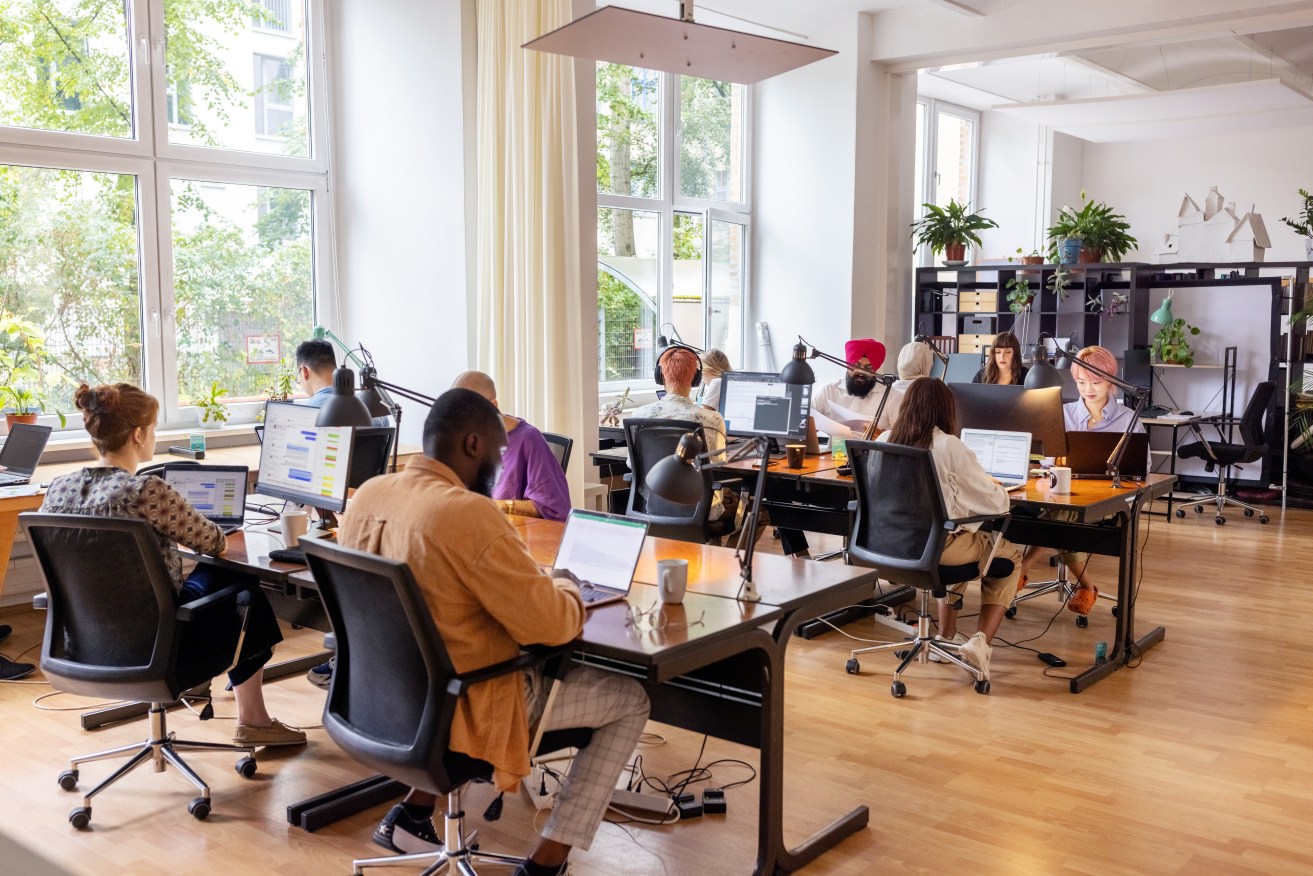Seven workplace trends to watch in 2024


The way we work has changed. Photo: Getty
What can we expect from the constantly-evolving world of work next year?
We asked three experts to peer into the crystal ball.
-
Knowledge workers more likely to unionise, strike
Sectors such as heavy industry, nursing and teaching have been heavily unionised for a long time.
But Aaron McEwan, vice president of research and advisory at Gartner, expects to see more knowledge workers fighting for their rights in 2024, and new unions created to represent them.
Why? Cost-of-living pressures are a major factor, he says.
“The gap between rich and poor is growing bigger and we’ve seen suppression of wages that are way out of line with inflationary pressures.”
Gen Z is driving an increased interest in both unionisation, and collective action via social media, says McEwan.
“They’re sitting there going ‘look, this idea of living to work doesn’t seem to pay off. I can’t buy a house, I can’t afford to pay my rent, like what’s the point of all of this?’”
-
AI will help redefine productivity
In a world of complex knowledge work and people working with machines, productivity will need to be viewed in a different light, says McEwan.
“Bums on seats and time in the office are inadequate measures of the type of complex work that humans need to do today.”
He predicts that, somewhat ironically, artificial intelligence and other technology will help us understand what makes complex humans more productive.
-
Companies will have to lift their game on psychosocial hazards
New psychosocial hazard legislation was introduced this year, requiring all employers to manage the risks of psychosocial hazards at work.
Such common hazards include job demands, violence and aggression, conflict or poor workplace relationships, bullying and harassment.
But workplace mental health specialist Liz Tully, of Mental Wealth at Work, says many employers are still struggling to understand the legislation.
“Workplaces know about it, but they don’t know how to practically implement it.”
She says workplaces need to take the legislation seriously in 2024, pointing to cases such as a Melbourne café boss who was fined $290,000 after the sexual harassment of multiple staff. He was convicted on two charges of failing to ensure a workplace under his control was safe and without risks to health.
Tully says workplaces that fail to provide a safe space for their workers are “not just going to get a slap on the wrist. It can be really dire consequences”.
-
Technology might also be crafting our jobs
McEwan predicts there will be more focus on job crafting, but this time via AI rather than the traditional one-on-one discussion with the boss.
“I think at the end of the day, every worker would love to be able to craft their job in line with, what do they enjoy? What’s going to make them happier, what are they best at?”
“Then that flows through to organisations to be able to move their talent in a more agile way, to get the stuff done that needs to be done.”
-
More of us will be working multiple jobs
As of June, 6.7 per cent of Australian workers had more than one job, with that number set to increase next year, according to Callam Pickering, an APAC senior economist at job site Indeed.
He says the number of multiple job holders has steadily risen since the pandemic began, and is likely to continue on an upward trajectory – “largely just because people have to keep their heads above water”.
-
More part-time jobs will be created
During Australia’s recent jobs boom, there were countless high quality, well paid full-time jobs in the offing, says Pickering.
However in the past six months or so, there’s been more part-time jobs taking their place, which he says is usually a sign of the economy getting weaker. And that could be a portent of things to come.
Underemployment could become more of an issue next year, as people begin seeking additional hours to cover their expenses, Pickering predicts.
-
It may not be quite so much of a candidate’s market
If you’re looking to find, or switch jobs next year, it may be a little more challenging to find a plum role in 2024.
“I still think it’ll be a reasonably favourable market for candidates but certainly not as favourable as we have seen in the past couple of years,” says Pickering.
He expects the unemployment rate to increase, and warns jobseekers may no longer hold most of the cards.
“In the current economic environment, businesses have been forced to remain with remote work, because it’s so difficult to find people to fill a lot of the jobs that are out there,” he says.
“I do wonder whether they’ll be so accommodating to candidates in an economic environment where the labour market isn’t so tight.”

















